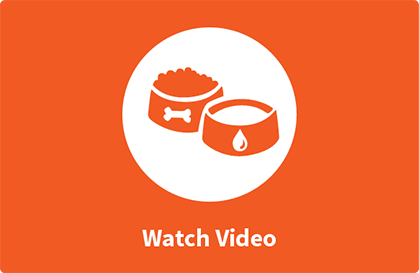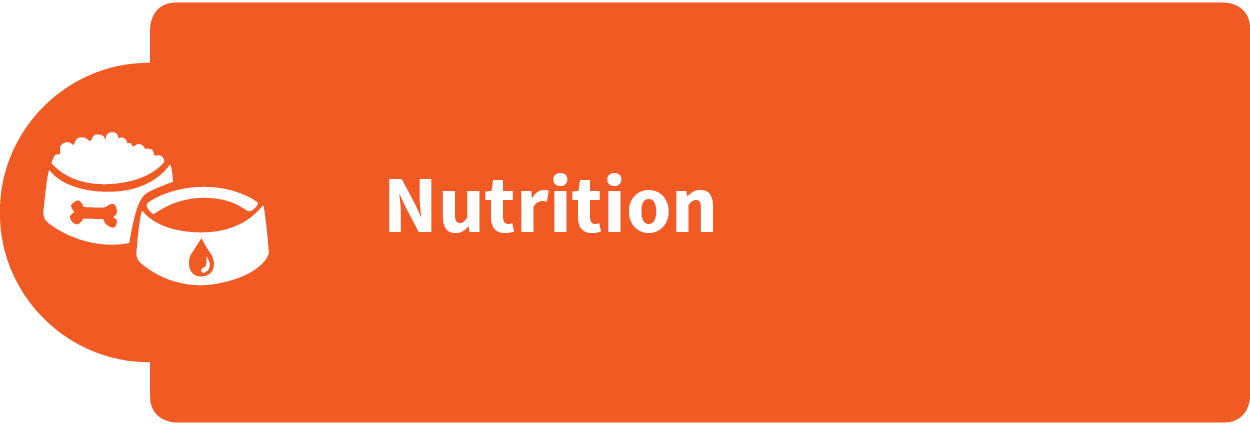Nutrition
All birds must have access to clean water and a well-balanced, nutritious diet. Proper nutrition provides a bird’s most basic needs by allowing that bird to remain in good health and full of energy.
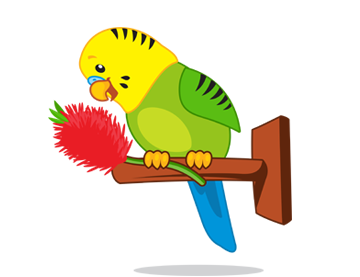
Did you know that there is a special law protecting animals?
This law is called the Animal Welfare Act. The Animal Welfare Act outlines how people must take care of and act towards animals in New Zealand. The Ministry for Primary Industries (MPI), the Police and SPCA work together to make sure people in New Zealand follow these laws.
Under the Animal Welfare Act, all animal guardians (owners) are responsible for making sure the welfare needs of animals in their care are met. Learning about the Five Domains helps us to understand these welfare needs and how we can make sure we provide these. One of the Five Domains is Nutrition. In this section you will learn about this domain and how you can make sure your companion birds have what they need for good nutrition.














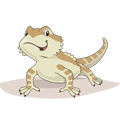
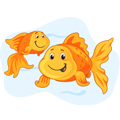
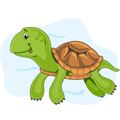
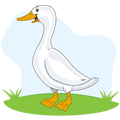
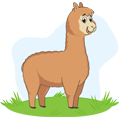
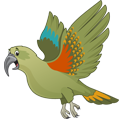
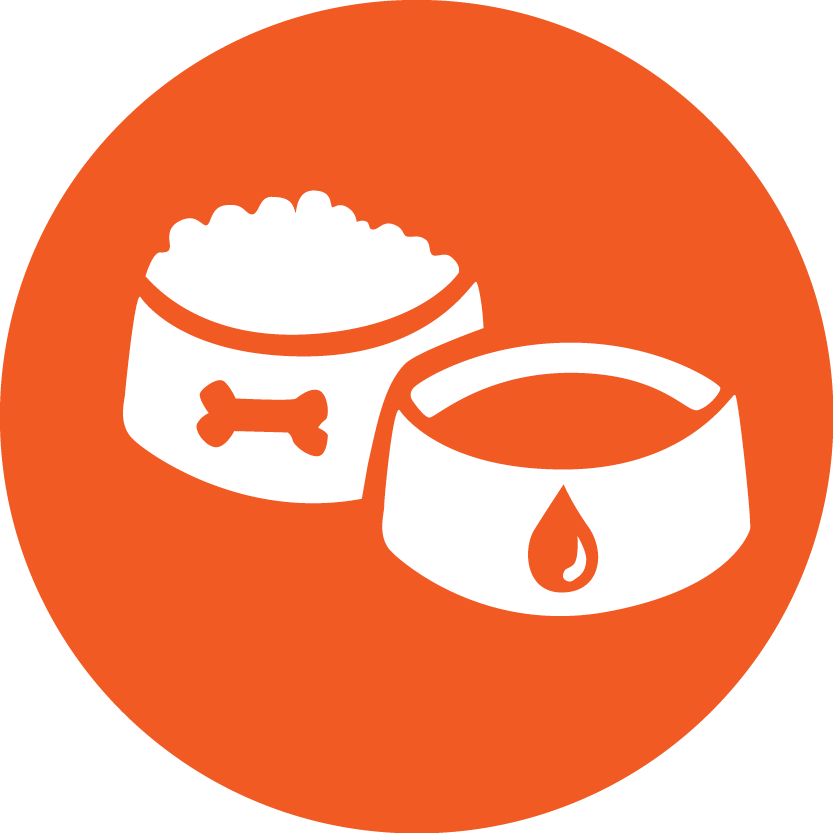
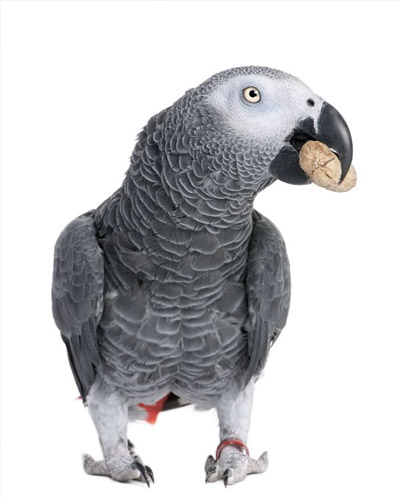 Birds are very active and need constant access to food to make sure they have all the energy they need to fly around. As your companion bird cannot go and find food themselves, it is very important that your family provides your bird(s) with a balanced, nutritious diet to ensure they live long, healthy and happy lives.
Birds are very active and need constant access to food to make sure they have all the energy they need to fly around. As your companion bird cannot go and find food themselves, it is very important that your family provides your bird(s) with a balanced, nutritious diet to ensure they live long, healthy and happy lives.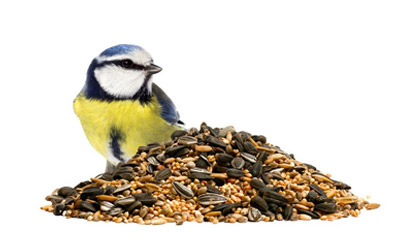 In the wild, budgies, cockatiels and canaries spend most of their time looking for lots of different types of seeds to eat in their environment. Unfortunately, most stores bought seed mixes are quite different to the types of seeds birds would be eating in the wild. Store bought seed mixes sometimes only have a few different types of seeds and are often high in fat and carbohydrates.
In the wild, budgies, cockatiels and canaries spend most of their time looking for lots of different types of seeds to eat in their environment. Unfortunately, most stores bought seed mixes are quite different to the types of seeds birds would be eating in the wild. Store bought seed mixes sometimes only have a few different types of seeds and are often high in fat and carbohydrates.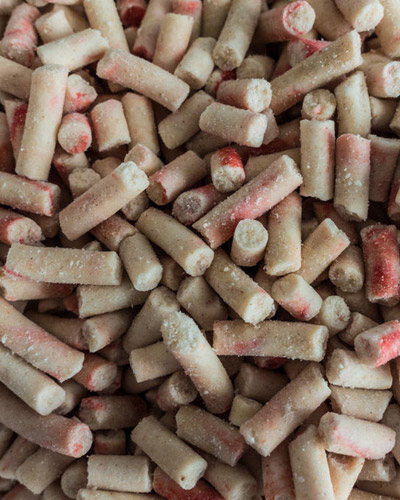 Bird pellets are a great diet choice for companion birds. They are made of high-quality ingredients and are a healthy, nutritionally complete diet for your birds.
Bird pellets are a great diet choice for companion birds. They are made of high-quality ingredients and are a healthy, nutritionally complete diet for your birds.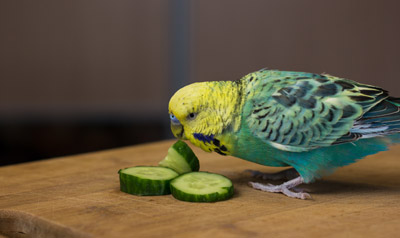 Fresh foods such as vegetables and fruit can provide extra vitamins and minerals that are important for a healthy bird. Not all vegetables and fruits are safe for birds, so it is important to check whether the fresh food is safe for your bird.
Fresh foods such as vegetables and fruit can provide extra vitamins and minerals that are important for a healthy bird. Not all vegetables and fruits are safe for birds, so it is important to check whether the fresh food is safe for your bird.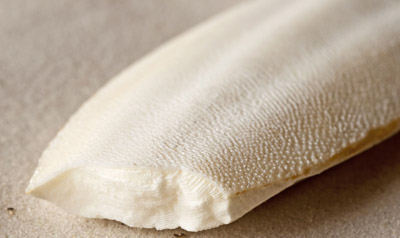 Unless advised by your birds’ veterinarian, most adult birds do not require additional supplements, provided that you are feeding your birds a complete and balanced diet.
Unless advised by your birds’ veterinarian, most adult birds do not require additional supplements, provided that you are feeding your birds a complete and balanced diet.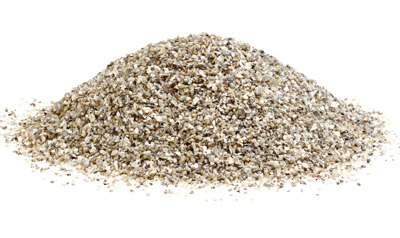 Grit can be offered sparingly (for example, once a month), but if fed a proper and balanced diet, birds should not require grit. Previously, it was believed that grit was an essential part of a companion birds' diets in order to help break down the seeds that they eat, but now most avian veterinarians are no longer recommending feeding grit.
Grit can be offered sparingly (for example, once a month), but if fed a proper and balanced diet, birds should not require grit. Previously, it was believed that grit was an essential part of a companion birds' diets in order to help break down the seeds that they eat, but now most avian veterinarians are no longer recommending feeding grit.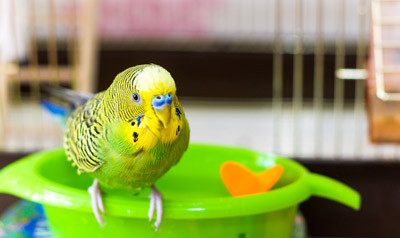 Water is absolutely essential for every function of a bird’s body. A bird needs water because without water, a bird is not going to survive for very long.
Water is absolutely essential for every function of a bird’s body. A bird needs water because without water, a bird is not going to survive for very long.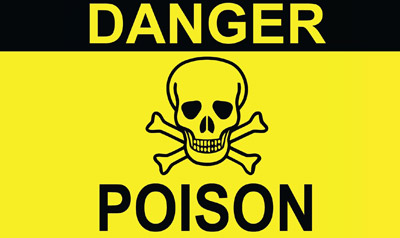 Not all foods are safe for your bird to eat. Birds can become sick very easily if they eat toxic foods, so make sure you check whether a certain food is safe or not before feeding it out.
Not all foods are safe for your bird to eat. Birds can become sick very easily if they eat toxic foods, so make sure you check whether a certain food is safe or not before feeding it out.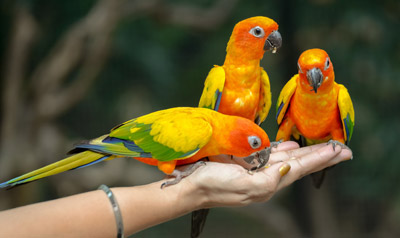 Watch for any changes in how much your bird is eating or drinking. Eating more or less than normal can be a sign that your bird is sick.
Watch for any changes in how much your bird is eating or drinking. Eating more or less than normal can be a sign that your bird is sick.